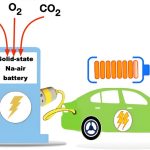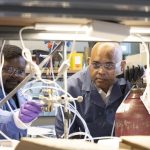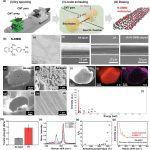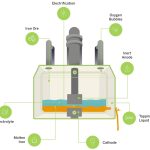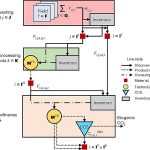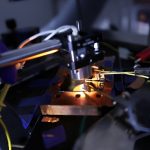Scientists create high-energy, high-efficiency all-solid-state sodium-air battery
A team of researchers from Pohang University of Science and Technology (POSTECH) has developed a groundbreaking high-energy, high-efficiency sodium-air battery.
This innovative battery can use...
New battery tech promises faster charging for electric vehicles
A research team has developed a groundbreaking technology that could make lithium-ion batteries more stable and long-lasting under fast-charging conditions, a crucial step for...
Scientists develop eco-friendly method to make hydrogen using solar power and agricultural waste
Engineers at the University of Illinois Chicago (UIC) have created a groundbreaking method to produce hydrogen gas using only solar power and agricultural waste,...
Scientists develop cheaper, long-lasting electrolysis cells for green hydrogen
Researchers at the Technical University of Denmark (DTU) have developed a new type of ceramic electrolysis cell that can produce hydrogen more efficiently and...
New carbon nanotube could turn waste heat into electricity
In a push towards sustainability, scientists are exploring new ways to harvest energy from waste heat.
While wind and solar power get most of the...
Scientists find greener way to make steel with electricity
Steel is one of the most important materials in modern life, used in everything from buildings and cars to bridges and airplanes.
However, traditional steelmaking...
Scientists develop new model for second-generation biofuels
Researchers at Princeton University and the Great Lakes Bioenergy Research Center have developed a model to map out the supply chain for second-generation biofuels...
Scientists achieve 44% efficiency in converting heat to electricity for renewable energy storage
Researchers at the University of Michigan have made a significant breakthrough in converting heat into electricity, achieving an impressive 44% efficiency.
This advancement brings us...
Electric cars: Swappable batteries could be the way to revive flagging sales
The rate of adoption of electric vehicles (EVs) in western countries continues to wane.
In the UK, EVs' market share of all new cars for...
Columbia study unlocks secrets to safer, more powerful lithium batteries
A team of researchers from Columbia Engineering has discovered how to use nuclear magnetic resonance (NMR) spectroscopy to design safer and better-performing lithium metal...

